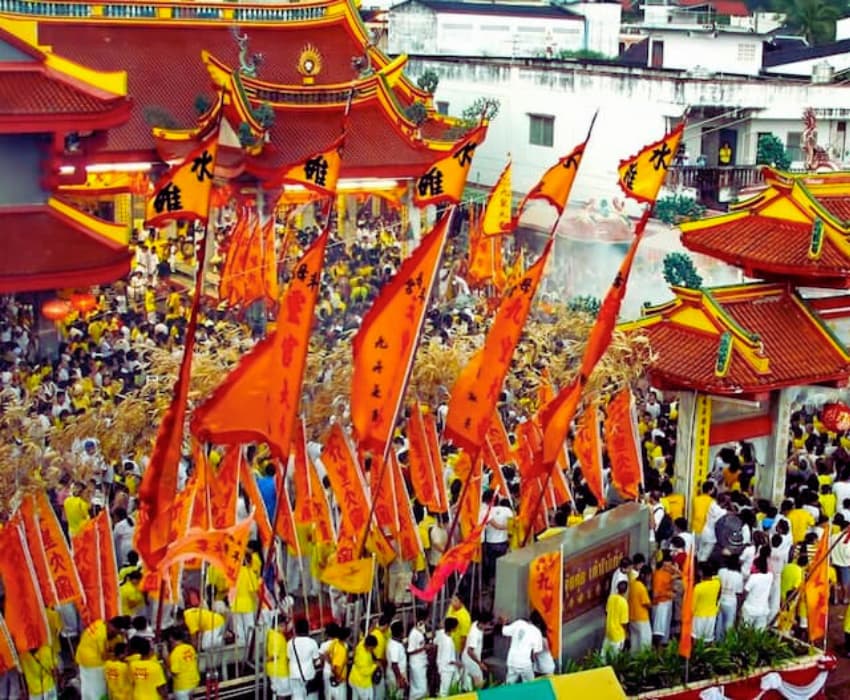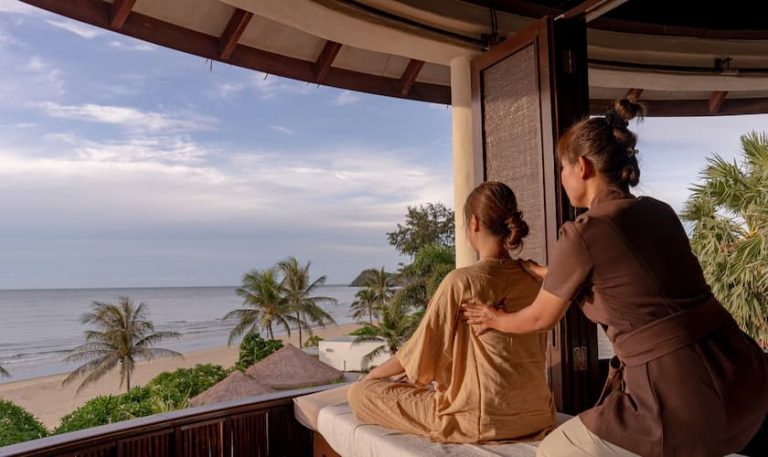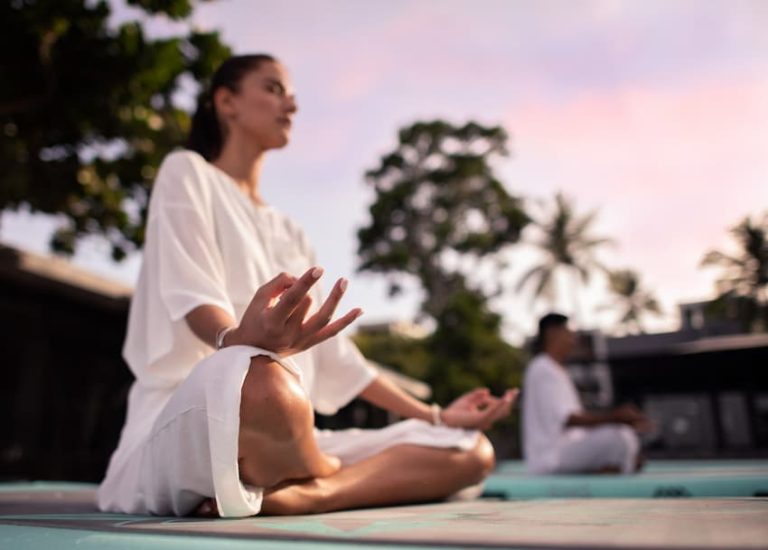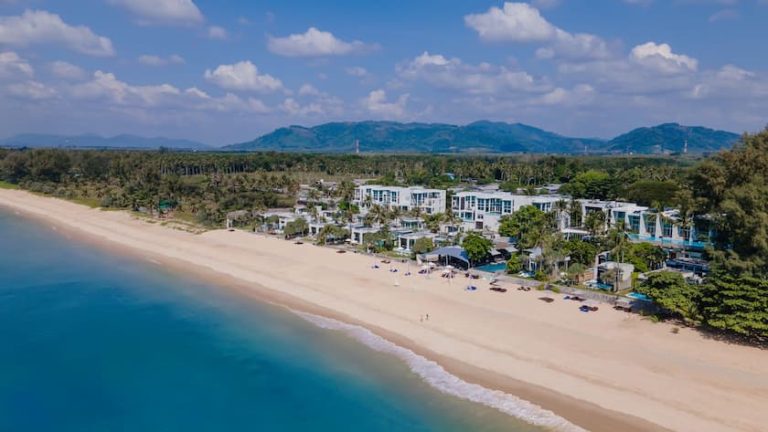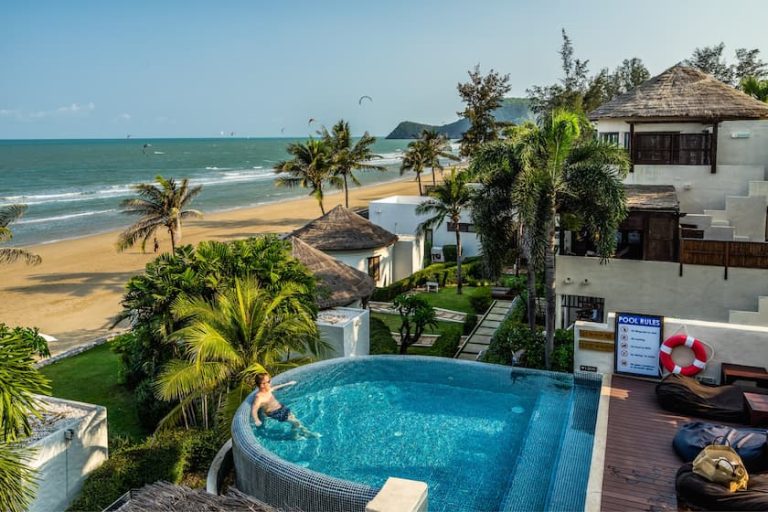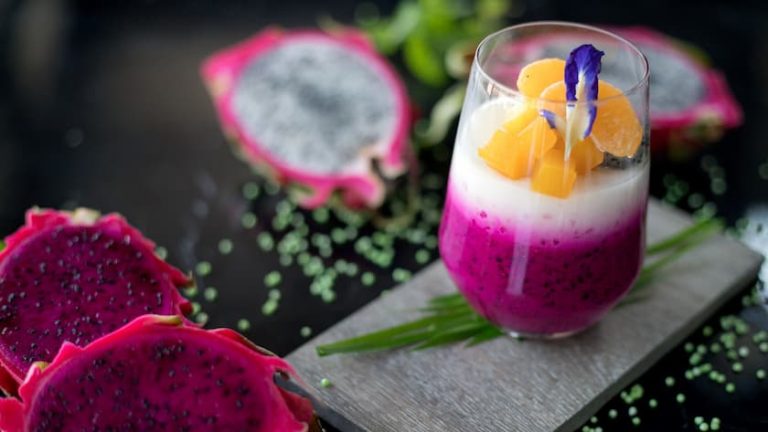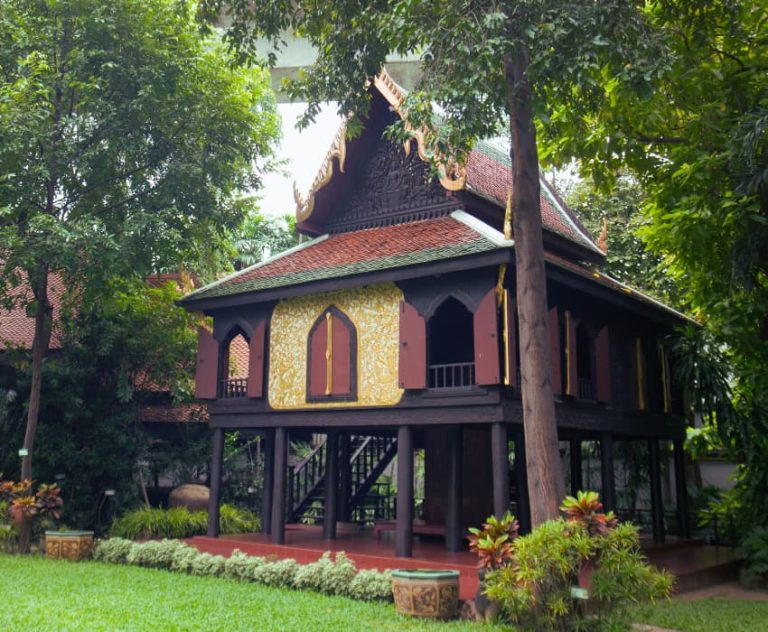The Phuket Vegetarian Festival is one of Thailand’s most unique and culturally rich events. It is celebrated annually in Phuket during the ninth lunar month of the Chinese calendar. What began over 150 years ago as a local religious observance has become a vibrant and widely recognised festival that draws thousands of participants and spectators worldwide.
At its core, the Phuket Vegetarian Festival is a time of spiritual cleansing and renewal. The festival is deeply rooted in Taoist beliefs and traditions, focusing on purifying the body and mind through a strict vegetarian diet. Participants abstain from consuming meat and other stimulants for nine days, believing that this practice brings inner peace and good fortune. The festival’s rituals and ceremonies, which include processions, body piercing, and firewalking, are not only acts of devotion but also vivid expressions of faith that captivate all who witness them.
Beyond its religious significance, the Phuket Vegetarian Festival broadly appeals to a diverse audience. Vegetarians and vegans are naturally drawn to the festival’s focus on plant-based cuisine, which features a wide array of traditional Thai and Chinese dishes made without meat. Spiritual seekers find a profound connection between the festival’s rituals and the sense of community that it fosters. On the other hand, cultural enthusiasts are fascinated by the festival’s unique blend of religious devotion, cultural practices, and spectacular ceremonies.
The Phuket Vegetarian Festival
The Phuket Vegetarian Festival has its roots deeply embedded in the history and culture of Phuket, dating back more than 150 years. The festival’s most widely accepted origin story involves a Chinese opera troupe that visited the Kathu District of Phuket in the early 19th century. During their stay, the members of the troupe fell seriously ill, likely due to an outbreak of malaria, which was common in the region at the time. The sudden illness struck fear in the local community, as many lives had already been lost to the disease.
In their desperation, the opera troupe members realised they had neglected to pay proper homage to the Nine Emperor Gods, deities central to Taoist belief revered for their power to bestow health and prosperity. In penance and devotion, the troupe vowed to follow a strict nine-day regimen of vegetarianism and prayer, seeking the gods’ mercy and protection. Remarkably, all the members recovered from their illness, which the local community attributed to the divine intervention of the Nine Emperor Gods. The local Chinese-Thai community established the Phuket Vegetarian Festival to celebrate this miraculous recovery and honour the gods. This tradition has been carried forward with great reverence ever since.
-
Cultural Significance
The Phuket Vegetarian Festival is much more than a local celebration; it is a cornerstone of the Chinese-Thai community’s cultural and spiritual identity. The festival is rooted in Taoist practices, particularly the worship of the Nine Emperor Gods, believed to control the elements and bring balance to the world. For the local community, the festival is an opportunity to honour these deities through acts of devotion, such as maintaining a vegetarian diet, participating in processions, and engaging in various ritualistic ceremonies.
The festival’s emphasis on physical and spiritual purity reflects the Taoist belief in the body, mind, and soul interconnectedness. By abstaining from meat and other indulgences, participants seek to cleanse themselves of impurities, thus aligning themselves more closely with the divine. The communal aspect of the festival is also significant, as it reinforces the bonds within the local Chinese-Thai community, fostering a sense of unity and shared purpose.
Today, the Phuket Vegetarian Festival is recognised for its religious importance and as a vibrant cultural event that attracts visitors across Thailand and beyond.
Festival Activities and Ceremonies
The Phuket Vegetarian Festival is renowned for its extraordinary and often intense rituals, deeply symbolic and steeped in spiritual significance. Among the most striking are body piercing, firewalking, and bladed ladder climbing, all performed by devotees known as “Ma Song.” These rituals are not merely acts of physical endurance but are believed to be channels through which the gods manifest their power and protection.
Body Piercing:
Perhaps the festival’s most iconic and visually arresting ritual involves Ma Song piercing their cheeks, tongues, and other parts of their bodies with various objects, including skewers, knives, and even household items. This act demonstrates their spiritual strength and is a way to absorb the community’s suffering, bring good fortune, and ward off evil spirits. The Ma Song enter a trance-like state, which is believed to be induced by the gods, allowing them to perform these extreme acts without feeling pain or sustaining lasting harm.
Firewalking:
Another significant ritual is the firewalking ceremony, where participants walk barefoot across beds of hot coals. This practice symbolises purification and the power of faith, with the belief that the flames will not harm those who are spiritually pure. Firewalking is a dramatic expression of the festival’s underlying theme of purification and is a crucial moment that draws large crowds of onlookers.
Bladed Ladder Climbing:
Climbing ladders made of sharp blades is another ritual that tests the Ma Song’s faith and spiritual fortitude. As with firewalking, the ability to perform this act without injury is believed to be a sign of divine favour. This ritual underscores the festival’s emphasis on the gods’ power to protect and purify their devotees.
-
Temple Ceremonies
Central to the Phuket Vegetarian Festival are the numerous ceremonies held at the island’s Chinese temples, with the Jui Tui Shrine being the most prominent. These temples serve as the spiritual hubs of the festival, where devotees gather to offer prayers, make offerings, and participate in various rituals.
One of the most important ceremonies is raising the Lantern Pole at the start of the festival. This event marks the official beginning of the festivities and is believed to signal the arrival of the Nine Emperor Gods. The pole, typically over 10 meters tall, is raised in the temple courtyard, and it is said that the gods descend to the earthly realm upon its erection. Prayers accompany the pole’s raising and the lighting of joss sticks, setting a solemn yet celebratory tone for the days to come.
Throughout the festival, the temples are filled with devotees who bring food and drink offerings to honour the gods. The spiritual energy of these temples is believed to be particularly potent during this time, and visitors are encouraged to participate by lighting candles and incense, contributing to the vibrant atmosphere of devotion and reverence.
-
Street Processions
The street processions are perhaps the most spectacular and widely anticipated events of the Phuket Vegetarian Festival. These processions feature Ma Song, who parade through the streets while performing their extraordinary acts of self-mortification, such as body piercing and firewalking. The processions are loud, colourful, and full of energy, with the constant sound of firecrackers, the rhythmic beat of drums, and the sight of devotees carrying religious banners and images of the gods.
The processions serve multiple purposes: a public display of devotion, cleansing the town of evil spirits, and an opportunity for the gods to interact with the community. As the Ma Song pass by, it is believed that they bring blessings to the onlookers and that the energy of the gods flows through them, protecting the community and ensuring good fortune for the coming year.
For spectators, the processions offer an immersive sensory experience. The air is thick with the smell of incense and smoke from the firecrackers, while the sight of the Ma Song in their trance-like states adds a sense of otherworldliness to the event.
Vegetarian Cuisine at the Festival
Vegetarianism is the cornerstone of the Phuket Vegetarian Festival, deeply rooted in the festival’s origins and spiritual significance. Abstaining from meat is not merely a dietary choice during this time; it is a sacred ritual meant to purify the body and mind. Participants believe consuming only vegetarian food for the festival cleanses them of impurities, aligns with the gods, and invites good fortune for the coming year. This act of purification is seen as essential for spiritual growth and maintaining harmony within the community.
The belief in the power of a vegetarian diet during the festival is tied to the Taoist tradition of honouring the Nine Emperor Gods, who are thought to bestow blessings and protection on those who follow the prescribed practices. By adhering to a meat-free diet, participants demonstrate devotion and respect for these deities, reinforcing the spiritual discipline required during this sacred period.
-
Food Offerings
The Phuket Vegetarian Festival is a culinary paradise for vegetarians and vegans, offering a rich array of plant-based dishes that reflect the diverse and vibrant flavours of Thai and Chinese cuisine. The streets of Phuket come alive with food stalls and markets, all adorned with distinctive yellow flags bearing red Chinese or Thai characters, signalling that only vegetarian food is sold there. These flags are crucial for visitors, making identifying where to find compliant food offerings easy.
During the festival, the variety of vegetarian dishes available is astounding. Traditional Thai and Chinese dishes are reimagined without meat, often using creative substitutes like tofu, soy products, and mushrooms to mimic the texture and taste of meat. These dishes are prepared with the same care and attention to flavour as their non-vegetarian counterparts, ensuring that even the most ardent meat-eater will not feel deprived.
Jay Curries:
These are vegetarian versions of the classic Thai curries, made with coconut milk, fresh vegetables, tofu, and sometimes soy protein. They are rich, flavorful, and often just as spicy as the traditional versions.
Pad Thai Jay:
A vegetarian take on Thailand’s famous stir-fried noodle dish, Pad Thai Jay is made with rice noodles, tofu, bean sprouts, peanuts, and a tamarind-based sauce. Fish sauce and shrimp are absent, and spices and soy sauce are added for depth of flavour.
Hoi Tod Jay:
This is a vegetarian version of the crispy Thai oyster omelette. Instead of oysters, it uses mushrooms or tofu combined with bean sprouts and served with a tangy dipping sauce.
Mock Meats:
Many stalls offer a variety of mock meats made from soy, wheat gluten, or mushrooms. These are used to create vegetarian versions of popular meat dishes, such as “chicken” satay or “pork” skewers, grilled and served with peanut sauce.
Vegetarian Spring Rolls:
Crispy and filled with fresh vegetables, tofu, and sometimes glass noodles, these spring rolls are a popular snack during the festival.
Dim Sum Jay:
This includes a selection of vegetarian dumplings filled with various ingredients such as mushrooms, tofu, and mixed vegetables, often served with soy-based dipping sauces.
Every dish emphasises local flavours and fresh ingredients, with abundant use of herbs, spices, and in-season vegetables. For those unfamiliar with vegetarian cuisine, the Phuket Vegetarian Festival offers an excellent opportunity to explore and appreciate the depth and diversity of plant-based eating within Thailand’s rich culinary tradition.
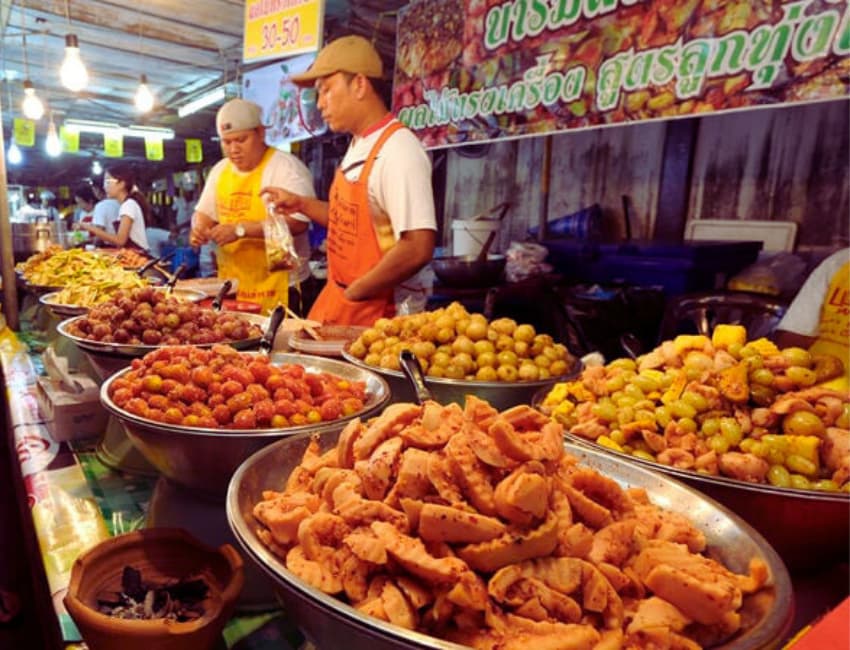
Commitments and Observances
The Phuket Vegetarian Festival is not only a time for celebration and spiritual devotion but also a period of strict observance of specific guidelines designed to maintain the purity and sanctity of the event. Whether locals or visitors, participants are expected to adhere to a set of commitments that reflect the festival’s deep spiritual roots. These guidelines are crucial for those wishing to fully immerse themselves in the festival’s rituals and gain blessings.
Wearing White:
Participants must wear white clothing throughout the festival as a symbol of purity. White is traditionally associated with cleanliness and the absence of impurities, which aligns with the festival’s emphasis on spiritual and physical purification. Wearing white also fosters a sense of unity and equality among participants, as everyone, regardless of status, dresses similarly.
Abstaining from Alcohol and Other Stimulants:
To maintain a clear and focused mind, participants must abstain from consuming alcohol, tobacco, and other intoxicants. This guideline reinforces the festival’s focus on cleansing the body and the mind, ensuring participants remain spiritually attuned and free from negative influences.
Observing a Strict Vegetarian Diet:
A central tenet of the festival is the commitment to a vegetarian diet, which excludes meat and animal products like dairy and eggs. This dietary restriction is believed to purify the body and honour the Nine Emperor Gods. All food consumed during the festival must adhere to these guidelines, and participants often take extra care to ensure that their meals are prepared following traditional practices.
Using Separate Utensils:
Participants are advised to use separate kitchen utensils to prepare vegetarian food during the festival. These utensils should not be shared with those not observing the festival, as this could compromise the purity of the food. This practice underscores the importance of maintaining strict dietary boundaries to preserve spiritual cleanliness.
Maintaining Purity of Body and Mind:
Participants are expected to maintain a high standard of personal conduct, both physically and mentally. This includes refraining from impure thoughts or actions, such as lying, gossiping, or quarrelling. The festival is a time for inner reflection and spiritual discipline, and participants are encouraged to embody virtues such as kindness, humility, and patience.
Abstaining from Sexual Activity:
Sexual activity is discouraged during the festival to ensure participants remain focused on their spiritual practices. This abstention is believed to help maintain the purity and sanctity of the rituals, allowing participants to channel their energy towards devotion and self-discipline.
Restrictions for Mourning Individuals:
Those who are in mourning are generally discouraged from participating in the festival’s ceremonies. Mourning is associated with death and loss, which are seen as incompatible with the festival’s themes of renewal and purification. As a result, mourners are asked to refrain from active participation to avoid introducing negative energy into the proceedings.
Pregnant and Menstruating Women:
Pregnant women and women who are menstruating are traditionally asked not to participate in the festival’s rituals. This guideline is rooted in ancient beliefs about the spiritual vulnerability of women during these times. It is thought that their participation could disrupt the flow of spiritual energy or compromise the purity required for the rituals.
For those who choose to participate in the Phuket Vegetarian Festival, it is essential to approach the event with respect and mindfulness of these commitments. The festival is not just a cultural event but a profoundly religious observance that requires dedication and discipline. Following these guidelines, participants can fully engage with the festival’s spiritual aspects, gaining the most from this unique and transformative experience.
These commitments help to maintain the festival’s sacred atmosphere and ensure that it remains a meaningful and respectful celebration of the community’s spiritual beliefs.
Experience the Festival
As a visitor, experiencing the Phuket Vegetarian Festival offers a rare opportunity to immerse yourself in a vibrant and profoundly spiritual event. To make the most of your visit, it’s essential to approach the festival with respect and understanding of its cultural and religious significance.
What to Wear:
- Visitors are encouraged to wear white clothing, per the festival’s tradition of symbolising purity. While this is not mandatory for tourists, wearing white shows respect for the local customs and helps you blend in with the participants.
- Wear modest clothing, covering shoulders and knees. The festival is a religious event, and dressing conservatively shows respect for the rituals and the local community.
Where to Go:
- Make sure to visit the key shrines involved in the festival, such as the Jui Tui Shrine in Phuket Town, the main temple and the centre of many ceremonies. Other important shrines include Bang Niew, Put Jaw, and Kathu Shrine.
- While Phuket Old Town is the festival’s focal point, smaller shrines in other parts of the island also hold ceremonies. They are worth visiting for a more intimate experience.
Engage Respectfully:
- Observe silently and respectfully When attending rituals like body piercing or firewalking. These are sacred practices, and it’s important to maintain a respectful distance and avoid interrupting the proceedings.
- If you’re invited to light incense or make offerings, do so with reverence. Follow the lead of locals and be mindful of your actions.
- Do not smoke, drink, or engage in loud conversations near temple areas or during processions. These behaviours are considered disrespectful during the festival.
Photography:
- The Phuket Vegetarian Festival is a visual spectacle; photography is allowed, but it’s important to be discreet. Avoid using flash during rituals, as it can be disruptive to both participants and other onlookers.
- If you wish to take close-up photos of individuals, particularly the Ma Song (devotees), always ask for their permission first. Some may not want their photos taken during such personal and spiritual moments.
- Capture the vibrant details of the festival, such as the intricate designs on the ceremonial clothing, the preparation of vegetarian dishes, and the symbolic yellow flags. These elements tell a rich visual story of the event.
Festival Highlights
The Phuket Vegetarian Festival is packed with events that span its nine-day duration. To fully experience the festival’s unique atmosphere, it’s important to plan your visit around key highlights:
Raising of the Lantern Pole:
This ceremony, which typically takes place on the first evening, officially begins the festival. It’s a symbolic event that signals the start of the festival and invites the Nine Emperor Gods to descend from the heavens.
Body Piercing Rituals:
These rituals usually occur in the mornings, starting early, around 7:00 AM. Witnessing these rituals is a profound experience, but arriving early is essential to secure a good viewing spot.
Firewalking Ceremony:
This event is one of the most dramatic spectacles of the festival, often held on the final days. It’s best to check the schedule beforehand, as firewalking ceremonies can vary in timing.
Street Processions:
These lively processions are held several days throughout the festival, typically in the late morning or early afternoon. The largest and most elaborate processions usually occur in Phuket Town.
Don’t hesitate to interact with locals who are often willing to share insights about the festival’s customs and rituals. This can enrich your understanding and appreciation of the event.
During the festival, explore the vast array of vegetarian street food available. Look for stalls with yellow flags indicating vegetarian options and enjoy the diverse flavours.
Two Vegetarian Restaurants to Try Near Phuket
After immersing yourself in the rich cultural experience of the Phuket Vegetarian Festival, why not continue your culinary journey with a visit to two of the finest vegetarian-friendly restaurants near Phuket? Seasons Restaurant and The Edge Restaurant offer exceptional plant-based dining experiences that perfectly complement the festival’s spirit.
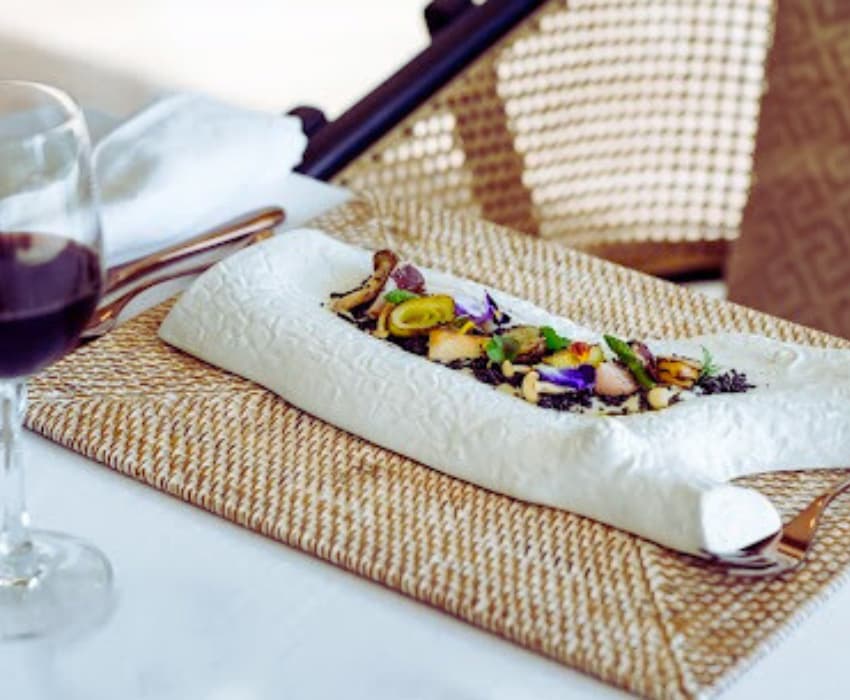
Seasons Restaurant
Seasons Restaurant, located within the luxurious Aleenta Resort, is a haven for those who appreciate the art of farm-to-plate dining. The restaurant is deeply committed to sustainability and the use of local, organic ingredients, making it a perfect choice for those who want to continue the vegetarian practices encouraged by the festival. Seasons takes pride in its farm-to-plate principles; sourcing produces directly from nearby farms and local artisans to ensure the freshest and most flavorful dishes possible.
One of the highlights of dining at Seasons is the option to indulge in one of their two expertly crafted tasting menus: “Savour the East” and “Savour the West.” Each menu offers a curated journey through various flavours and textures, drawing on global culinary traditions and the rich heritage of Southern Thai cuisine.
Savour the East:
This menu showcases dishes inspired by Asian flavours, such as Har Gao, a steamed dumpling with local spirulina and organic tofu, and the Mussaman Curry with homemade mushroom seitan and coconut milk. Each dish is designed to highlight the best of the region’s seasonal produce, offering a fresh and satisfying dining experience.
Savour the West:
For those who prefer Western cuisine, this menu features dishes like Beetroot Tartare with plant-based goat cheese mousse, and Andaman Sea Risotto made with Phuket-harvested sea grapes and spirulina seaweed. The attention to detail in presentation and flavour ensures a memorable meal that aligns with the festival’s emphasis on purity and wellness.
At Seasons, the use of organic, locally sourced ingredients enhances the taste of each dish and supports the local community, echoing the festival’s values of purity, sustainability, and respect for life.
The Edge Restaurant
For a more contemporary dining experience, The Edge Restaurant, also located within Aleenta Resort, offers a stunning beachfront setting where you can enjoy diverse vegetarian dishes while taking in the serene views of Natai Beach. The Edge is renowned for its Asian-inspired contemporary cuisine, which blends traditional flavours with modern culinary techniques.
The restaurant’s menu features a variety of vegetarian options that make the most of fresh, seasonal ingredients. Whether you’re in the mood for a light bite or a hearty meal, The Edge has something to satisfy every palate.
Wellness Starters:
Begin your meal with options like Hummus Tacos, crispy corn tacos filled with homemade hummus and confit tomatoes, or the refreshing Gazpacho, a chilled soup made with tomatoes, cucumber, and herbs, served with crispy vegetables and multigrain bread.
Balanced Mains:
For your main course, explore dishes like the Lotus Root & Veggies in Mild Vegan Curry, which features fresh lotus root, asparagus, and pumpkin in a flavorful coconut milk curry, or the Teriyaki Tofu, wok-sautéed tofu with broccoli, carrots, and organic riceberry. Each dish is thoughtfully prepared to highlight the ingredients’ natural flavours, making for a satisfying and nourishing meal.
Healthy Sweets:
Complete your dining experience with one of The Edge’s delectable desserts, such as the Raw Chocolate Tart made with locally sourced Siamaya dark chocolate or the Natai Fruit Salad, featuring a selection of organic tropical fruits in pandan and stevia syrup.
The Edge’s casual yet refined atmosphere is ideal for post-festival dining. Whether enjoying a leisurely lunch by the beach or a romantic dinner under the stars, the restaurant’s serene setting and exceptional cuisine offer the perfect way to unwind after a day of festival activities.
Both Seasons and The Edge restaurants provide outstanding vegetarian dining experiences that align with the themes of the Phuket Vegetarian Festival. By focusing on fresh, organic ingredients and innovative plant-based dishes, these restaurants offer visitors a chance to extend their celebration of vegetarianism beyond the festival while enjoying the beautiful surroundings of Phuket’s coastline.
Related Articles
- Songkran Festival in Phuket
- Guide to Phukets Local Markets
- The Seasonal Cycle of Vegetarian Cuisine in Southern Thailand
- The Harmonies of Wine and Vegetarian Cuisine
- Two Amazing Plant-Based Restaurants in Phang Nga
Aleenta Phuket
Phang Nga Resort & Spa
Phang Nga Resort & Spa
33 Moo 5, Khok Kloi,
Takua Thung, Phang Nga
82140 Thailand
T: +66 (0) 76 580 333

